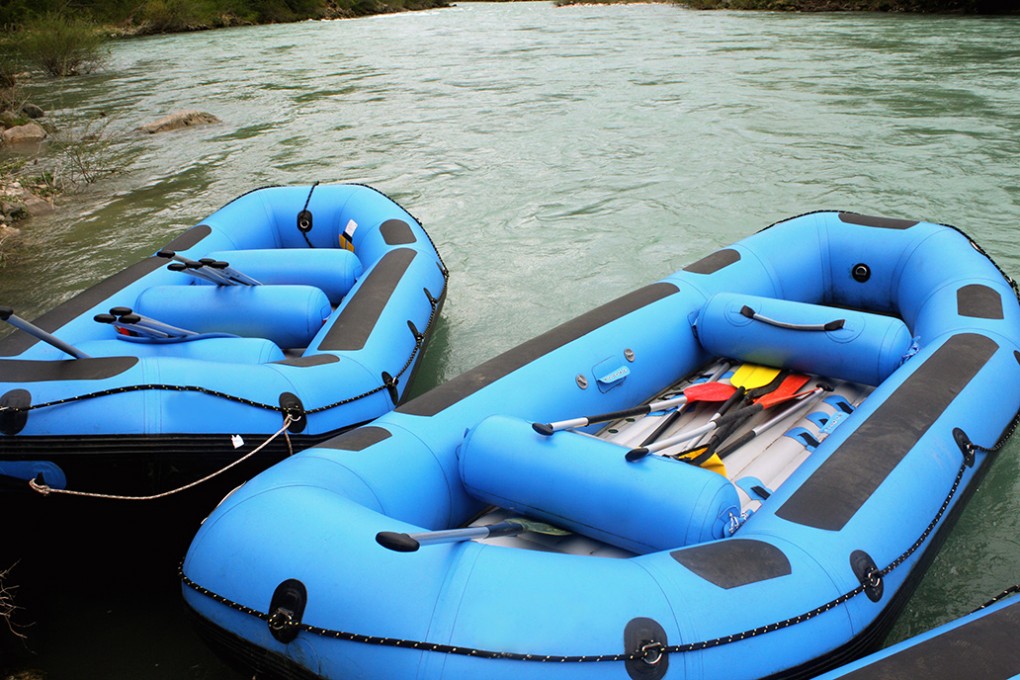Latest Posts
How To Clean And Maintain Your Inflatable Boat

There are also all different kinds of inflatable boats available now, from a floating ‘island’ with shaded areas to relax under, through to kayaks and canoes for exercise, as well as boats for diving, fishing, and even water skiing. However, they do require proper maintenance, otherwise they can deteriorate quite quickly. Overtime, the material can develop weaknesses or be punctured, making the boat unsafe for use.
The good news is, that if maintained properly, an inflatable boat can have a lifespan of 20-30 years, and this maintenance itself is fairly straightforward.
1. Clean the boat properly
The most important step in the maintenance of an inflatable boat is the cleaning, and you should undertake a proper cleaning process from the day of purchase. One thing to be aware of is that many cleaning products actually weaken and damage the material of an inflatable boat. If you’re using cleaners containing solvents, MEK, toluene, acetone, bleach, ammonia, alkaline cleaners with a pH of greater than 11.5, or using abrasive scrub pads or steel wool to clean the boat, then you’re going to be reducing its lifespan by weakening the material, as well as hurting the aesthetics of the boat by scratching or wearing the decal. There are dedicated boat cleaning products that are ideal for use, though a mild dish soap can also be used.
It’s also important to thoroughly rinse out the boat after each use, otherwise sand and other small debris can get into the boat and cause abrasion, or mold can develop when fresh water is allowed to soak into the material.
2. Store the boat properly
When not in use, it’s a good idea to store the boat partially inflated. A completely deflated boat is at greater risk of damage, however given that one of the reasons that many opt for an inflatable boat is that they have limited space, it’s not always possible to do this. So if you have limited space and must store the boat completely deflated, make sure it’s completely dry and clean, then roll it according to instructions and store in the carrying bag that came with it. Never store the boat folded; the folds cause long-term damage to the material.
In addition, try to store the boat away from other objects. While the most obvious threat to the boat is sharp objects, even the most innocuous, dull objects that are commonly stored with inflatable boats, such as oars and ropes, can cause abrasion over the long term if they’re left to rub against the boat’s material.
The Titan Garages & Sheds have a great range of storage locations to suit your needs, and we provide a number of Titan Tidy parts to ensure that your shed is sturdy and safe.
3. Avoid sharp objects
This goes without saying; an inflatable boat does not like sharp objects, but it’s harder to keep the boat away from them than it might sound. Knives and fish hooks are commonplace in places where you might be taking an inflatable boat. At dock, there are sharp objects such as barnacles or jutting wood that can tear a boat’s material and at beaches, there are rocks, shells and coral that a boat may drag over.
You can’t always avoid these objects, so instead, be aware of where the sharp objects might be, and learn how to best mitigate the risk to the boat.
4. Inflate the boat properly
Many people over-inflate their boats, and this can cause a lot of damage. The ideal amount of inflation means the boat will have a slight bit of give. Too much and the tube can explode if struck. It’s also important to remember that temperature can have an impact; many people inflate their boats early in the morning, and then as the temperature heats up, the expanding air in the tubes leads to an over-inflated boat. With most models, it’s easy to let a little air out, even when the boat is in operation.
The best way to inflate a boat is to fill a little bit of air into each chamber in a clockwise pattern, until the boat takes shape, and from there fill each chamber fully.
Enjoy your inflatable boat
With a little care and maintenance, an inflatable boat is a purchase that can last you a long time and, best of all, it travels around, making it so much easier for camping trips, or in the event that you need to move home.
